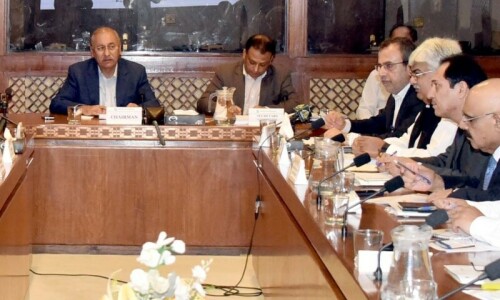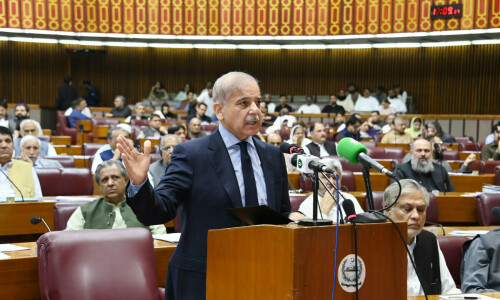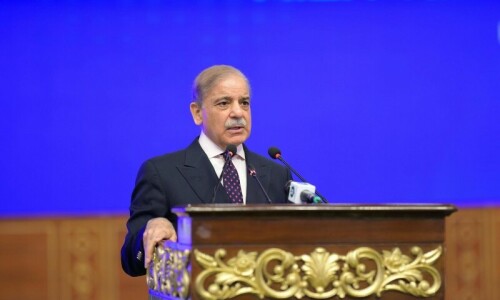The recent surge in electricity prices in Pakistan has ignited a complex chain reaction, threatening to destabilise the nation’s economic and social fabric.
The ramifications of these tariff increases extend far beyond simple consumer discomfort, potentially undermining the very foundations of Pakistan’s power sector and broader economic stability.
At the heart of this crisis lies a vicious cycle of unintended consequences. Each incremental rise in electricity tariffs sets off a cascade of effects that, paradoxically, may ultimately prove counterproductive to the goals of revenue generation and sector reform.
Firstly, the sharp increase in electricity costs has led to a troubling surge in power theft. As households struggle to cope with inflated bills, in addition to substantial general inflation, many are driven to illegal connections and meter tampering.
This not only represents a loss of revenue for utilities but also poses significant safety risks and strains the already burdened power infrastructure and value chain.
Secondly, we’re witnessing a marked reduction in sales of electricity and bill recovery rates. As tariffs climb, so do incidences of bad debt and the burden of capacity payments.
Utilities are forced to allocate more resources to debt collection and disconnection processes, inflating administrative costs and further eroding their financial health.
Pakistan struggles with power theft, corruption and bad debts in the wake of rising electricity tariffs
Thirdly, perhaps the most insidious consequence is the heightened risk of corruption within utility companies. As the sector becomes increasingly unreliable and unaffordable for the masses, employees — particularly those in lower cadres — may succumb to the temptation of accepting bribes in exchange for overlooking theft or manipulating bills. This erosion of institutional integrity further damages sector efficiency and liquidity, already ranking among the highest in corruption indices.
Fourthly, we’re observing a trend of reduced consumption or a shift to alternate solar routes, particularly among residential consumers, who constitute nearly half of Pakistan’s electricity demand. While conservation might seem positive on the surface, this demand destruction can lead to a dangerous feedback loop with assets stranded.
As consumption drops, the fixed costs of power generation, transmission and distribution must be spread across a smaller consumer base, potentially necessitating further tariff hikes to meet the revenue requirements of the power sector.
Compounding these issues is the additional burden of taxes, which can add 20-25 per cent to consumer bills. This tax component grows in lockstep with tariff increases, amplifying the pain for end-users and further incentivising non-payment or theft.
The broader economic implications are equally concerning due to the rupee devaluation, higher inflation and higher cost of borrowing. We’re already experiencing residential loadshedding (commercial-based), which could be further increased or, if extended to non-residential consumers, could impair Pakistan’s GDP growth.
This will ultimately result in slow economic growth and decreased tax revenue from this sector, creating yet another strain on government finances and fiscal space.
It’s crucial to recognise that this is not merely a problem of circular debt, but rather a circular reference — a complex, interconnected system where each element exacerbates the others. The traditional approach of analysing the electricity sector in isolation is no longer sufficient.
We must adopt a holistic view that considers the intricate relationships between policy, regulations, consumer behaviour, utility operations, contractual performance of assets and macroeconomic stability.
The responsibility for this crisis is widely distributed across the entire value chain. From non-compliant consumers to government officials and politicians, from investors to lending organisations — all stakeholders must acknowledge their role in both the problem and its potential solutions.
As Pakistan grapples with this multifaceted challenge, it’s clear that conventional wisdom and piecemeal reforms will not suffice. The time for analysis paralysis has passed — now is the moment for decisive, coordinated action.
What’s needed is a paradigm shift with the envisaged transition and implementation of the power sector reforms aligned to the 1992 strategic plan to achieve the intended goal of corporations, privatisation, competition and efficiency to ensure reliable, affordable and accessible electricity to the consumers of Pakistan.
The writer served as the director of finance at K-Electric
Published in Dawn, The Business and Finance Weekly, August 12th, 2024
















































